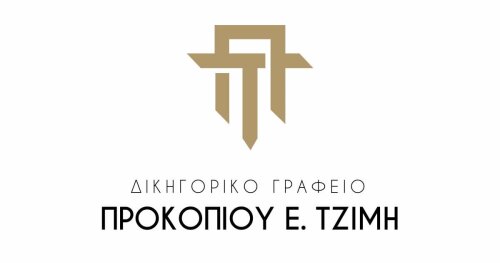Best Public-Private Partnerships (PPP) Lawyers in Athens
Share your needs with us, get contacted by law firms.
Free. Takes 2 min.
List of the best lawyers in Athens, Greece
About Public-Private Partnerships (PPP) Law in Athens, Greece
Public-Private Partnerships (PPP) in Athens, Greece, refer to contractual collaboration between government entities and private sector companies to finance, construct, operate, and maintain infrastructure or provide services. PPPs are utilized in Greece for projects like transport, energy, water supply, waste management, public buildings, and urban development. The aim is to leverage private sector expertise and resources to deliver projects that serve the public interest while providing reasonable returns for private investors. Athens, as the capital and an economic hub, often sees significant PPP initiatives to meet the growing demand for quality infrastructure and services.
Why You May Need a Lawyer
Engaging in a PPP project in Athens can be complex, requiring thorough legal oversight to navigate contracts, regulatory requirements, and financial arrangements. Some common situations where legal assistance is essential include:
- Reviewing or drafting PPP agreements and ensuring contract compliance.
- Participating in governmental tenders or bidding processes for public projects.
- Negotiating terms and managing expectations between public authorities and private parties.
- Assessing risk allocation and responsibility sharing in long-term infrastructure projects.
- Ensuring compliance with Greek and European Union legal frameworks.
- Addressing disputes over project implementation, payments, or performance obligations.
- Obtaining required licenses, permits, or regulatory approvals for project operation.
- Handling project finance structures and related securities.
- Guiding foreign investors on local PPP regulations and procedures.
A knowledgeable lawyer helps protect your business interests, minimizes risks, and ensures efficient project delivery within the legal boundaries established in Greece.
Local Laws Overview
PPPs in Athens are governed by a combination of Greek laws and European Union regulations designed to promote transparency, competition, and effective public procurement. The key legislation is Law 3389/2005, which provides the main framework for implementing PPPs in Greece. This law outlines rules for project selection, contract terms, state guarantees, and financing arrangements.
PPP projects must go through formal selection and approval processes overseen by public bodies such as the Interministerial Committee for Public-Private Partnerships (D.E.S.D.I.T.). All proposals are subject to competitive tendering and must conform to procurement rules ensuring fair access and equal treatment. Environmental, technical, and financial feasibility assessments are also mandatory before project initiation.
Foreign investors and companies are permitted to participate in Greek PPP projects, subject to compliance with local laws and EU directives on public procurement and competition. Dispute resolution mechanisms are typically stipulated in contracts, and recourse can often be made to Greek courts or arbitration panels, depending on the agreement.
It is essential to pay attention to specific municipal requirements, as projects within Athens may involve additional local regulations pertaining to zoning, city planning, heritage protection, and community engagement.
Frequently Asked Questions
What is a Public-Private Partnership (PPP) in Greece?
A PPP in Greece is a legally binding agreement where a public sector authority and a private entity collaborate to deliver infrastructure or public services. The private party often finances, builds, and operates the project, recovering its investment through payments from the public authority or end-users.
Which sectors commonly use PPPs in Athens?
Common sectors include transport (roads, metro, airports), healthcare, education, water and waste management, government buildings, and energy infrastructure.
Who can participate in PPP projects in Athens?
Both Greek and foreign private companies, joint ventures, and consortiums can participate in PPP tenders, provided they meet the eligibility criteria set out in the public tender documents.
What are the typical steps to initiate a PPP project?
A potential PPP goes through needs assessment, feasibility studies, approval from the Interministerial Committee for PPPs, public tendering, contract awarding, financial close, and project implementation.
Do PPP contracts require public tendering in Greece?
Yes. All PPP contracts of significant value are subject to open, competitive public tendering to ensure transparency and fair competition under Greek and EU procurement rules.
What are the key risks for private partners in PPPs?
Key risks include construction delays, cost overruns, regulatory changes, demand risk, payment delays, and potential disputes with the public sector partner.
What legal protections exist for PPP participants?
PPP contracts include detailed provisions for performance obligations, risk-sharing, dispute resolution, and the ability to seek redress through courts or arbitration if necessary.
How are PPP projects financed in Athens?
PPP projects are usually financed through a combination of private capital, bank loans, state contributions, and in some cases, revenues generated directly from users of the service or infrastructure.
Can foreign investors participate in Greek PPPs?
Yes, foreign companies and investors are welcome, but they must comply with Greek laws, adhere to tender requirements, and often partner with local entities for project delivery.
What happens if a dispute arises in a PPP project?
Disputes are typically resolved according to the dispute resolution procedures in the PPP contract, which may specify negotiation, mediation, arbitration, or litigation before Greek courts.
Additional Resources
If you seek more information or guidance on PPPs in Athens, consider these organizations and resources:
- The Greek Ministry of Infrastructure and Transport - responsible for public works policies and many PPP projects.
- The Secretariat for Public-Private Partnerships - offers guidance, documentation, and oversight for PPPs nationwide.
- The Hellenic Parliament - for legal texts and updates on relevant laws.
- The Technical Chamber of Greece (TEE-TCG) - for standards and regulations related to engineering and construction.
- The Athens Bar Association - for finding qualified lawyers with PPP expertise.
- The European PPP Expertise Centre (EPEC) - for best practice guidelines and case studies across Europe.
Next Steps
If you are considering involvement in a PPP project in Athens or need advice on an existing agreement, take the following steps:
- Define your objectives and gather relevant project or contract documents for review.
- Seek a consultation with a Greek lawyer specializing in PPPs or public procurement law.
- Prepare a list of questions and concerns about your role, risks, or the regulatory process.
- Assess your eligibility and potential for participation if you are a foreign investor or company.
- Consult with local public authorities or the Secretariat for PPPs to understand project pipelines and procedures.
- Engage a legal expert early to avoid costly delays or disputes later in the process.
Remember that legal advice tailored to your specific situation is invaluable in navigating the complexities of PPP projects in Athens and ensuring a successful partnership for all parties involved.
Lawzana helps you find the best lawyers and law firms in Athens through a curated and pre-screened list of qualified legal professionals. Our platform offers rankings and detailed profiles of attorneys and law firms, allowing you to compare based on practice areas, including Public-Private Partnerships (PPP), experience, and client feedback.
Each profile includes a description of the firm's areas of practice, client reviews, team members and partners, year of establishment, spoken languages, office locations, contact information, social media presence, and any published articles or resources. Most firms on our platform speak English and are experienced in both local and international legal matters.
Get a quote from top-rated law firms in Athens, Greece — quickly, securely, and without unnecessary hassle.
Disclaimer:
The information provided on this page is for general informational purposes only and does not constitute legal advice. While we strive to ensure the accuracy and relevance of the content, legal information may change over time, and interpretations of the law can vary. You should always consult with a qualified legal professional for advice specific to your situation.
We disclaim all liability for actions taken or not taken based on the content of this page. If you believe any information is incorrect or outdated, please contact us, and we will review and update it where appropriate.
















